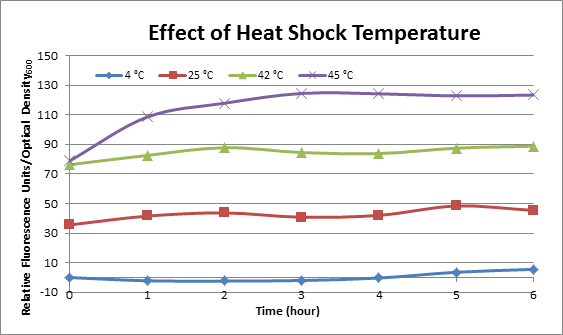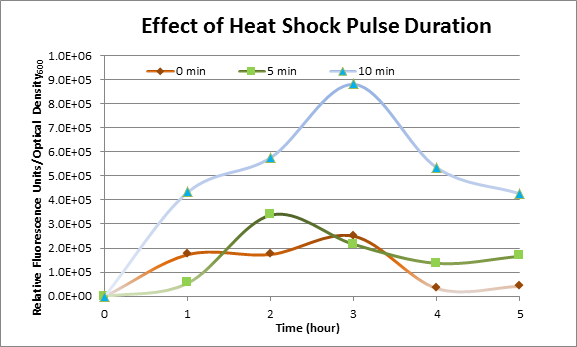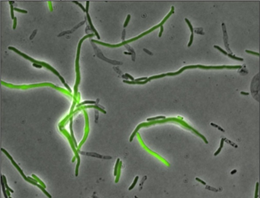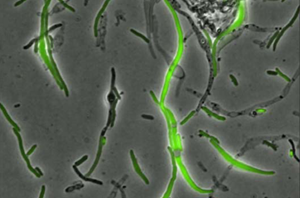BBa K338001
From 2010.igem.org
<partinfo>BBa_K338001 short</partinfo>
This is a modified K112400 heat shock promoter in BBa standard.
Contents |
Usage and Biology
BioBrick Characterization
Effect of Heat Shock Temperature
DH5α cells containing HSP-GFP were incubated at 4°C, 25°C, 42°C, and 45°C separately for two hours. Measurements of the fluorescence level of GFP were taken using the plate reader at 20 minute intervals and were averaged over a 1 hour interval. The vertical axis is raw fluorescence units normalized by OD600. Normalized value of 4°C at t=0 was subtracted from all the values to show a relative difference.
This experiment data suggests that heat shock promoter activity increases with heat shock temperature.
Effect of Heat Shock Duration
DH5α cells containing HSP-GFP were heat shocked at 42°C for 0 min (kept at room temperature), 5 min and 10 min separately. Measurements of the fluorescence level of GFP were taken using the plate reader at 15 minute intervals and were averaged over a 1 hour interval. The vertical axis is raw fluorescence units normalized by OD600.
The measurements suggest that a heat shock period of 10 minutes significantly increases the production of GFP, while a heat shock period of 5 minutes leads to a similar GFP production level as the untreated cells. Furthermore, the production of GFP shows a decreasing trend after 3 hours suggesting that the heat shock promoter was only activated for a certain time period. DH5α cells contained in the images below were incubated at 42°C for 10 minutes, and 6 hours later the fluorescence was visualized by an optical microscope with a GFP-specific filter.
 "
"



